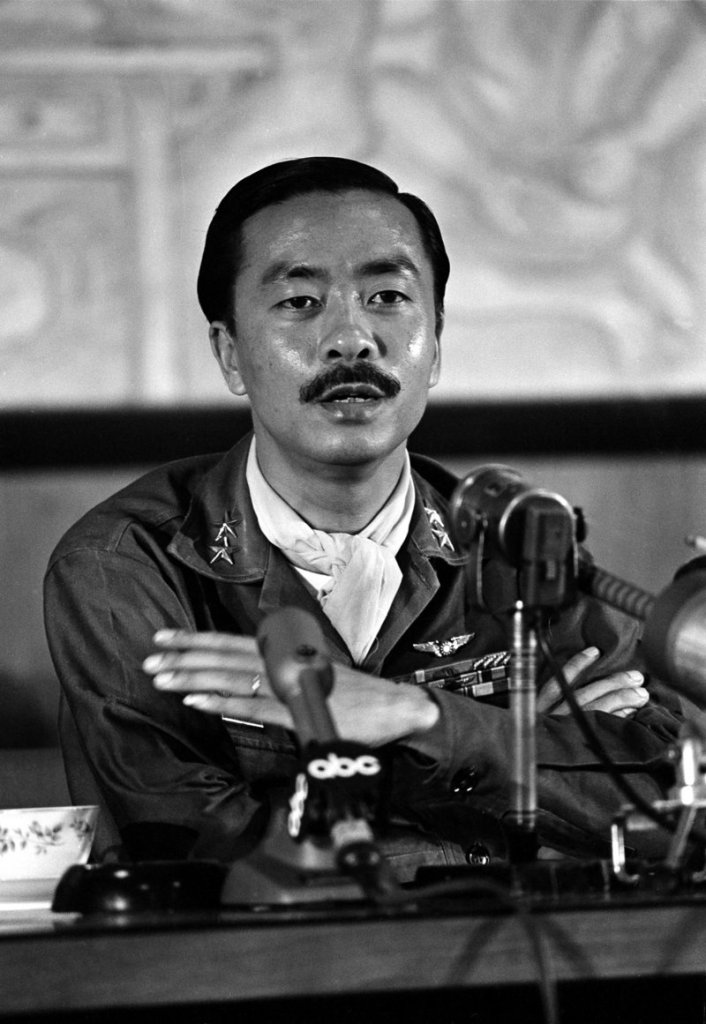KUALA LUMPUR, Malaysia – Nguyen Cao Ky, the flamboyant former air force general who ruled South Vietnam with an iron fist for two years during the Vietnam War, died today. He was 80.
Ky died at a hospital in Kuala Lumpur, Malaysia, where he was being treated for a respiratory complication, his nephew in Southern California said.
“He was in good health, but in the last couple of weeks he had been weak,” Peter Phan said. He said Ky split his time between his home in California and Vietnam.
One of his nation’s most colorful leaders, Ky served as prime minister of U.S.-backed South Vietnam in the mid-1960s. He had been commander of South Vietnam’s air force when he assumed the post in 1965, the same year U.S. involvement in the war escalated. He was known as a playboy partial to purple scarves, chic nightclubs and beautiful women.
“It’s true that I did have absolute power when I was made premier,” he said in a 1989 interview. “You may recall there was no congressional body in South Vietnam at that time. For more than two years, my word was the absolute law.”
From 1967 to 1971, he was vice president under his frequent rival, Gen. Nguyen Van Thieu.
When Thieu’s government in Saigon fell to North Vietnamese troops in 1975, Ky fled by piloting a helicopter to a U.S. Navy ship. He and his family eventually settled in the United States, where he led a quiet life largely away from politics. He made headlines in 2004 when he made a controversial visit back to his homeland, praising the communists, his former enemies.
Born in Son Tay province west of Hanoi in 1930, Ky grew up under French colonialist rule and became involved as a youth in the national liberation movement led by Ho Chi Minh.
He left the movement, however, when he fell ill with malaria. He eventually enlisted in the army, where he trained as a pilot and rose through the ranks during the French fight against the insurgency. He was one of the roughly 1 million who fled south after France’s defeat at Dien Bien Phu in 1954. The French withdrawal divided the country into the communist North and noncommunist South.
Ky rose steadily in South Vietnam’s fledgling air force and was chosen as prime minister by a junta of generals even though he had no political experience. He was able to end a disruptive cycle of coups and countercoups that followed the assassination of Ngo Dinh Diem, whose repressive regime was overthrown by military generals in 1963.
But when it came time for the country’s presidential election in 1967, Ky yielded power to his longtime rival, Thieu, who held the ceremonial post of chief of state.
Send questions/comments to the editors.



Success. Please wait for the page to reload. If the page does not reload within 5 seconds, please refresh the page.
Enter your email and password to access comments.
Hi, to comment on stories you must . This profile is in addition to your subscription and website login.
Already have a commenting profile? .
Invalid username/password.
Please check your email to confirm and complete your registration.
Only subscribers are eligible to post comments. Please subscribe or login first for digital access. Here’s why.
Use the form below to reset your password. When you've submitted your account email, we will send an email with a reset code.